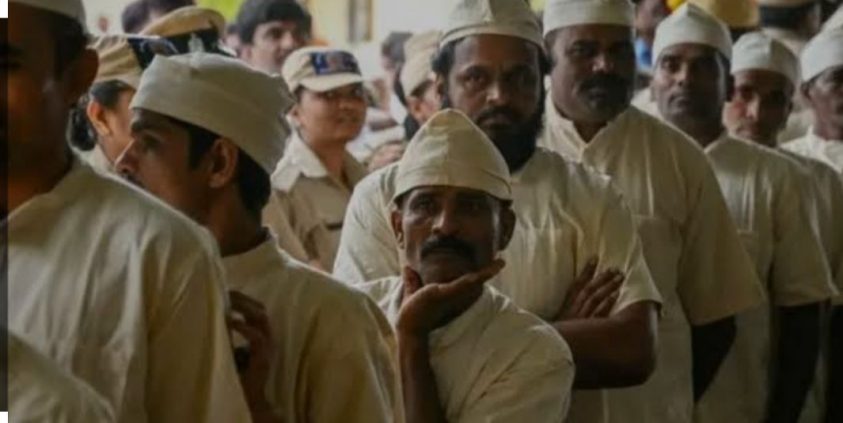Work and food in jail based on caste: Dalits tell stories of discrimination in jails

Posted on by Dalit Times
Dalit prisoners have shared their personal stories, saying that in prisons they were assigned jobs based on caste, where they were forced to do cleaning, sweeping, and cleaning toilets without brushes even when they were sick.
The recent landmark judgement of the Supreme Court has brought a new twist to an important battle against caste discrimination against Dalits and marginalised communities in Indian prisons. The judgement struck down several colonial-era rules that promoted caste-based division of labour in prisons. The judgement brings hope of justice and equality to Dalit prisoners who have been fighting against discrimination inside prisons for years.
Inmates share their personal stories
Dalit prisoners and activists across the country, such as Daulat Kunwar, have long complained of caste atrocities and injustice in prisons. Daulat Kunwar, a Dalit activist who was imprisoned several times, said that prisoners in prisons were assigned jobs based on caste, where they were often forced to do degrading work such as cleaning. This discrimination was not limited to work, but Dalits were also oppressed in terms of food and drink. This was not only a violation of their rights but also confirmed the caste system deeply ingrained in Indian society. Prisoners have shared their personal stories where they were forced to clean, sweep, and clean toilets without brushes even when they were sick.
Dalits were made to stand in a queue like animals and were given leftover food
Prisoners like Inder Pal and Monu Kashyap from Hapur told how Dalits were given less food, and were made to stand in queues like animals and were given leftovers. This situation not only insulted their dignity but also exposed the caste-based exploitation they faced.

Supreme Court verdict: End of colonial rule
The Supreme Court struck down several colonial-era rules in the prison manual, saying that these rules promoted caste-based division of labour. This decision has given a new hope towards justice and equality for Dalit prisoners. Police and administrative officials have also praised this decision. Uttar Pradesh DGP Prashant Kumar called it a step to restore the dignity of labour in prisons.
Reforms have begun, but mindset needs to be changed
Social activists believe the changes made in the prison manual are just the beginning. Dalit activist Satish Prakash says the real challenge is to eliminate the deep-seated caste bias in society, which exists both inside and outside prison. Without social engineering and change in mindset, legal reforms alone will not be enough. Lawyers like Kishore Kumar also insist that for the prison administration, the word ‘Dalit’ is not just an identity, but the mindset of associating them with traditional professions also needs to be changed.
hope for improvement in the future
This decision of the Supreme Court has given a new direction to the elimination of caste discrimination in prisons. This decision not only brings hope of justice for Dalit prisoners, but also demands comprehensive reforms that promote equality and dignity in Indian society.




